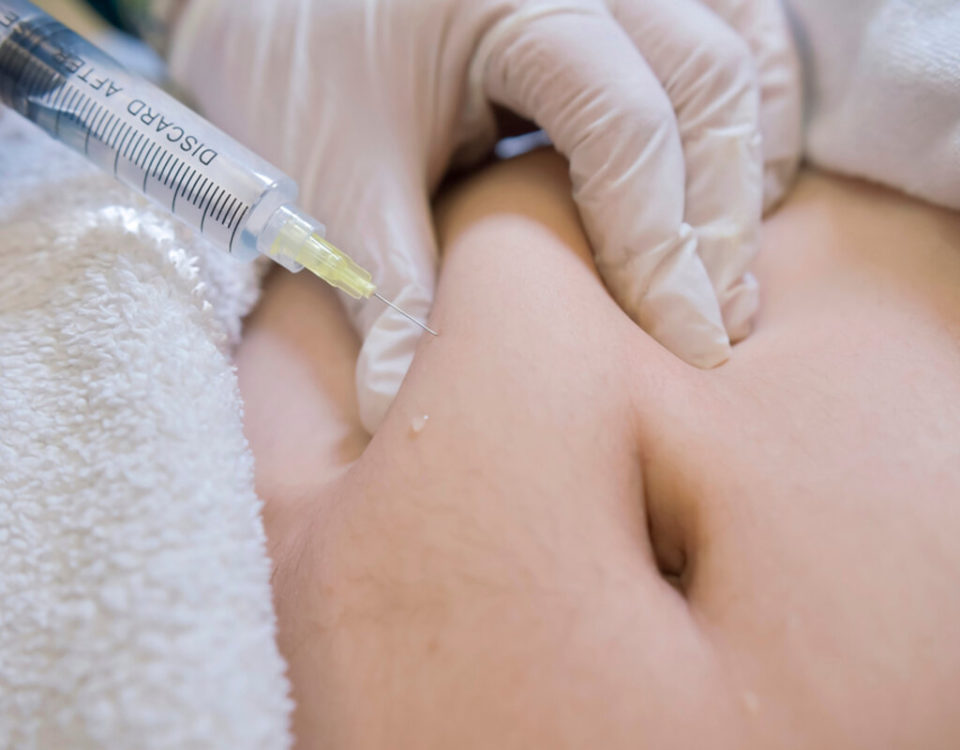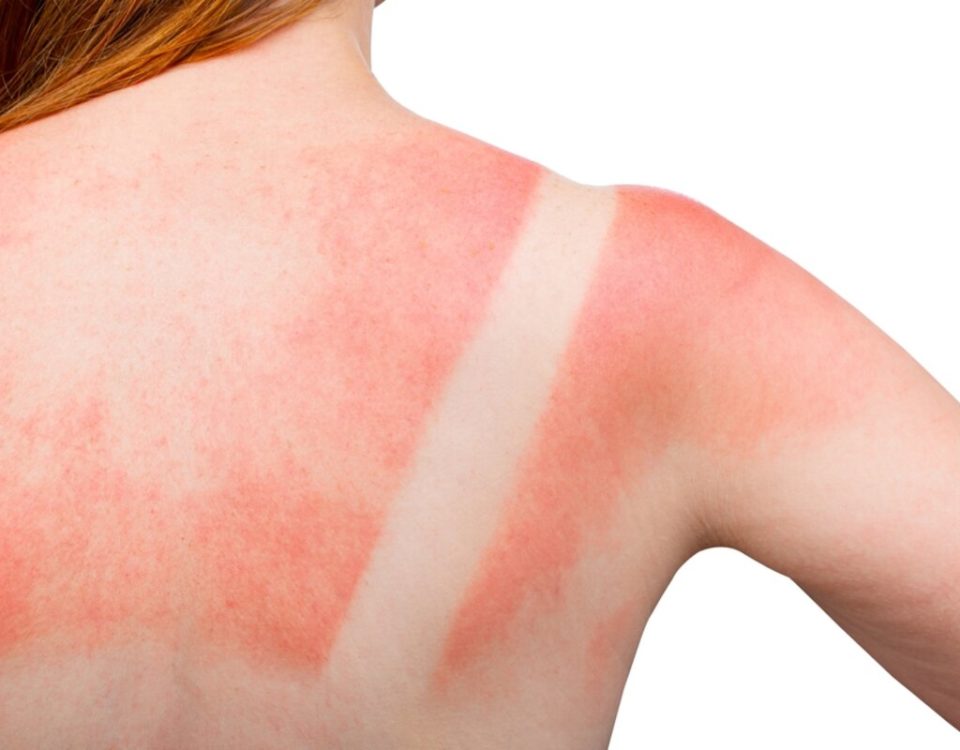
Your Face’s Biggest Foe: Acne
November 23, 2020
Sun Sensitive Prescriptions: What They Are and How to Protect Your Skin
December 28, 2020Finding the perfect skincare routine can be a long, uphill battle. Oftentimes the perfect skincare routine cannot even be found in the beauty aisle. Some women have found that birth control clears skin better than the most expensive creams and lotions, while some women have found that birth control worsens their acne.
Facial acne is a common problem regardless of age, but that doesn’t make it easier to deal with. Let’s explore the ways that different types of birth control affect skincare.
How Are Skin and Birth Control Related?
The most important link between skin and birth control are hormones. Hormones are a common root cause for acne, and hormones are the primary active ingredients in birth control.
To truly understand how different birth control types affect your skin, it’s crucial to understand how hormones actually function. Over the course of the 28-day menstrual cycle, the first half is dominated by the hormone estrogen, and the hormone progesterone dominates the second half.
Sebum is an oil created by the skin that clogs pores and increases bacteria growth, creating prime breeding grounds for acne. According to WebMD, excess production of sebum triggers acne, and a group of hormones called androgens triggers the skin to produce sebum. It is a certain combination of estrogen and progesterone that decreases levels of androgens in the body.
The determining factor in whether birth control will help or hinder your skincare routine is the hormones that make up different birth control types. Estrogen, androgens, and progestin are the primary hormones at play.
- Estrogen generally improves acne.
- Androgens cause sebum production and surplus hair growth.
- Progestin (a manufactured version of progesterone) is available in several versions, and some doses cause more androgenic results than others.
Types of Birth Control and How They Affect Skin
Birth control is a prevalent medication. As of 2017, approximately 65% of women living in the United States from age 15 to 49 use some form of birth control. Women use it for several reasons, and acne control is the 4th most common.
Not only does birth control have many uses, but it also comes in many forms. This includes:
- Oral Contraceptives
- Contraceptive Injection
- Intrauterine device (IUD)
- Contraceptive Ring
- Contraceptive Implant
- Contraceptive Patch
Oral Contraceptives or “The Pill”
Birth control pills are a type of combined hormonal contraceptive made up of estrogen and progestin, and it must be taken daily. These hormones suppress the body’s ability to produce androgens, suppressing sebum production and, ultimately, acne.
If you choose this method, ask your doctor about brands of the pill made specifically for acne control. Not all of them are created for this use, and some can actually worsen your acne.
Contraceptive Injection
This form of birth control is a shot that needs to be administered once a month or once every few months, so once you take it, it can’t be undone. The shot may contain progestin and estrogen, but it may only contain progestin. A shot that only contains progestin, like Depo-Provera, will disrupt your skincare routine and cause more acne.
Intrauterine Device (IUD)
An IUD is actually the most popular form of birth control in the world. It is flexible, a T-shaped piece of material (usually plastic) that is simply inserted into the uterus and prevents sperm from connecting with an egg. IUDs can remain effective for at least 3 years.
Some brands are totally hormone-free and will not affect acne. The lower- and higher-dose hormonal IUD options release varying amounts of progestin, causing increases in acne relative to progestin doses.
Contraceptive Ring
The contraceptive ring is a small, flexible ring that must be vaginally inserted every three weeks, followed by a week-long break. The ring releases estrogen and progestin slowly into the bloodstream. These hormones work similar to the pill, resulting in less acne.
The ring is generally known to cause fewer adverse effects (like acne) than the pill.
Contraceptive Implant
The contraceptive implant is under skin birth control. It is a small plastic rectangular piece that a doctor inserts in the upper arm, right under the skin’s surface. This type of birth control releases progestin and can last up to three years.
While most implants are progestin-only (which is known to increase acne), not all implants result in more acne.
Contraceptive Patch
The contraceptive patch is a skin patch birth control that can be worn on the upper arm, stomach, or back. Like the ring, it is left on for three weeks, then taken off for a week before replacing it. It releases estrogen and progestin into the bloodstream.
Although these hormones are known to decrease acne, there is too little evidence about the patch and its effect on the skin to make any claims.
What is the Best Birth Control for Acne-Prone Skin?
The most common form of birth control prescribed to ease your skincare routine is one of four different birth control pills approved by the FDA for acne treatment:
- Ortho Tri-Cyclen
- Estrostep
- Beyaz
- Yaz
Although these are the most common prescriptions, this doesn’t necessarily mean that they will be the best for you. Many women have to try a few brands and before finding one that works best for them. Unfortunately, one type of birth control that clears skin across the board doesn’t exist.
How Long Does it Take for Birth Control to Clear Skin?
As with any medication, birth control can take weeks or even months before you notice any significant changes in your skin or anything else. There is no one answer to the question, “How long does it take for birth control to clear your skin?” You’ve just got to be patient and consistent in taking your medication while continuing to care for your skin beyond taking birth control.
Birth control isn’t the only medication that can affect skincare and facial treatments, so make sure you talk to your doctor about how any potential medication may impact your skin.
Taking Care of Your Skin
If you’re thinking about using birth control for skincare, remember that birth control is only an aid for clearer skin. It’s important to continue to take care of your skin. A proper skincare routine that keeps your face clean and moisturized is highly recommended, in addition to any prescribed skin care medication. Winter weather is also known to have an impact on skin, so check out our winter skincare guide for some tips. If you’re looking for new and better ways to care for your skin or ramp up your skincare routine, visit our website to learn more about our professional skin care services at Spa MD.
New Clients:
$35 deposit for all new clients
Cancellation/No Show Policy:
$35 fee for all no show, no call and any cancellations less than 24hrs before the start of your appointment.Any prepaid services will be forfeited.
Call us at +1(651)222-4490
Email us at SpaConsultantsMD@gmail.com
or, Schedule a free consultation
We are located on the main level inside of the Blair Arcade Building. We validate parking in the lot connected to the building off of Selby. Be sure to bring your ticket in with you!
Business Hours:
Monday: 9:00am - 8:00pm
Tuesday: 9:00am - 5:00pm
Wednesday: 9:00am - 8:00pm
Thursday: 9:00am - 8:00pm
Friday: 10:00am - 5:00pm
Saturday: 9:00am - 2:00pm (3 Saturdays per month- please call or email for more information)




